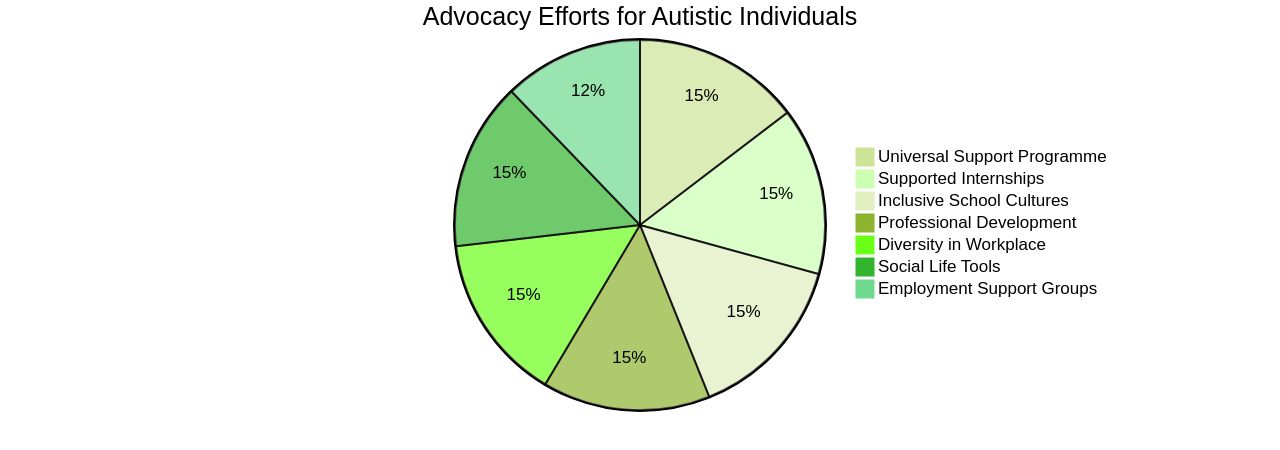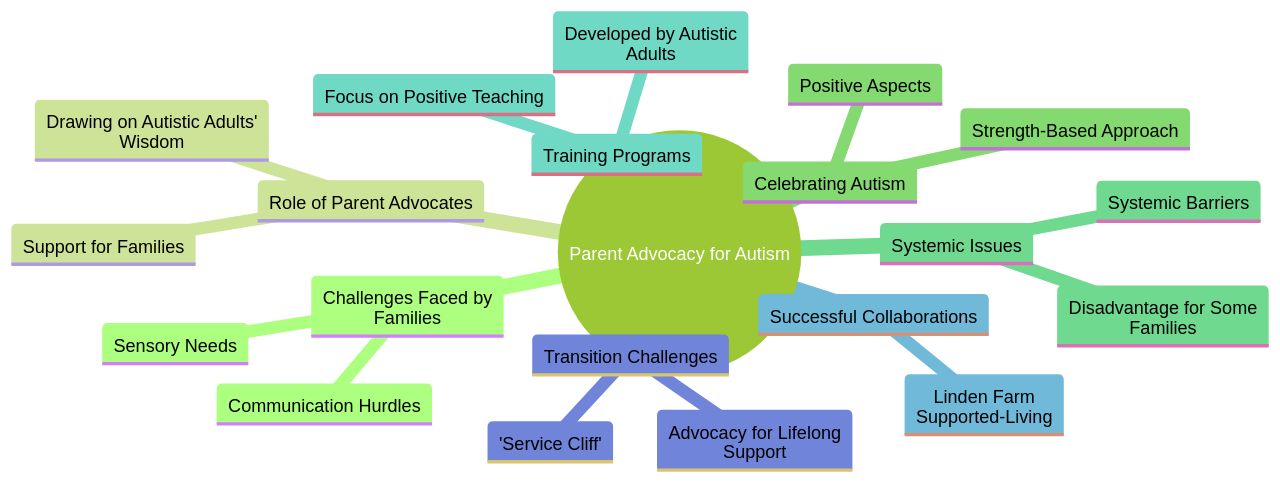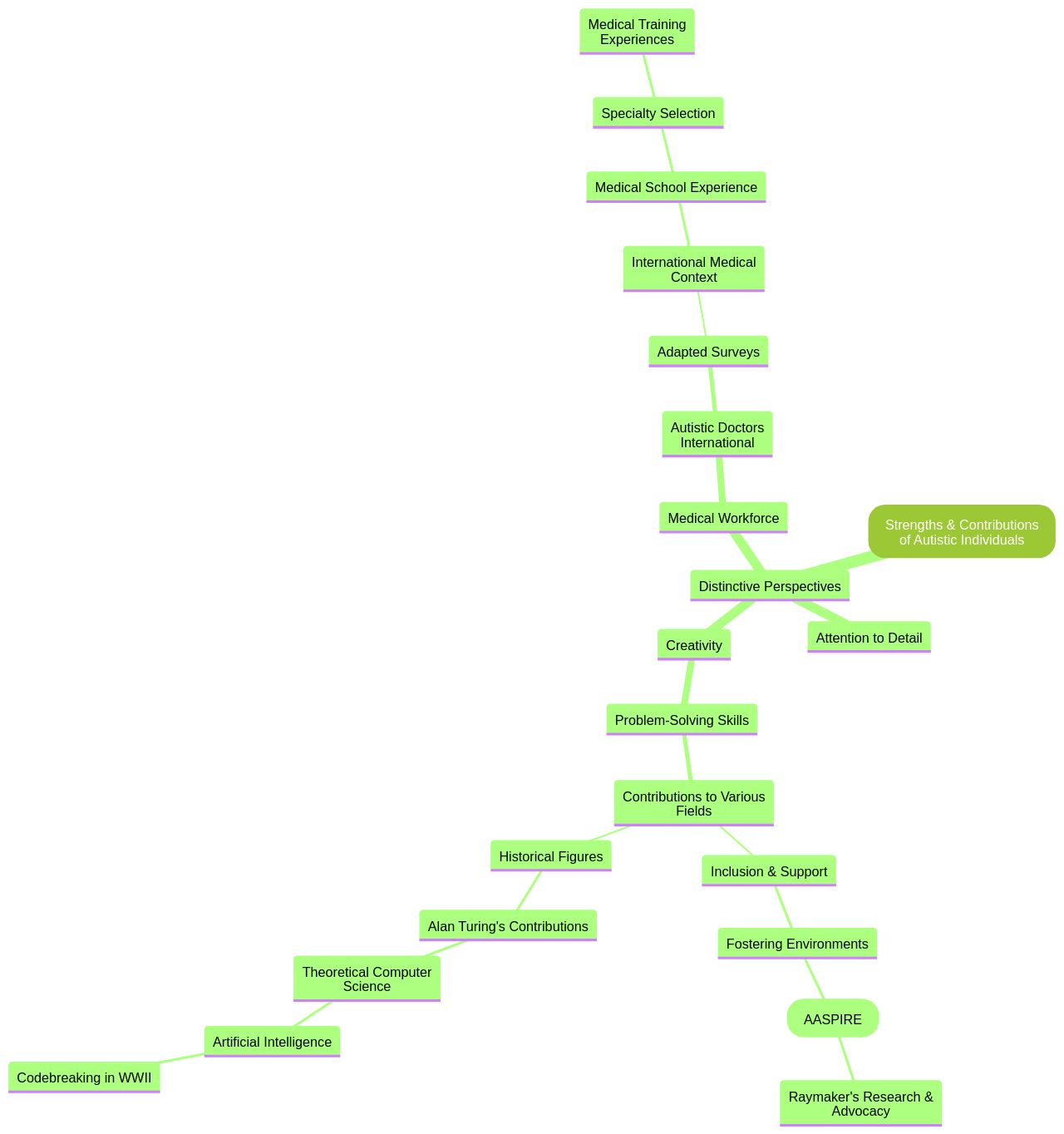Introduction
Autism Spectrum Disorder (ASD) affects individuals in various ways, presenting developmental challenges and impacting communication and social interactions. This article explores the importance of tailored multidisciplinary treatment, recent scientific advancements, and the need for ongoing research.
It also delves into dispelling misconceptions and stereotypes surrounding ASD, promoting acceptance and inclusion. Additionally, the article discusses the role of parent advocates in creating inclusive spaces for autistic individuals, practical strategies for parents and caregivers, and the significance of self-advocacy. The aim is to provide guidance and resources to empower parent advocates in navigating the challenges of raising children with ASD and ensuring their well-being.
Understanding Autism Spectrum Disorder
Autism Spectrum Disorder (ASD) presents an array of developmental challenges, particularly in communication and social interactions, with symptoms and severity varying widely among individuals. A poignant case involved a non-verbal child with ASD facing aggressive behaviors and sleep disturbances, exacerbated by systemic barriers such as lack of insurance and inadequate access to therapies. This underscores the importance of a tailored multidisciplinary approach to treatment, acknowledging that each person with ASD has unique strengths and requires specific support levels.
Recent scientific advancements, including studies on dopamine's role in neural development and innovative single-cell assays, offer hope for uncovering new therapeutic targets and understanding ASD's molecular underpinnings. With 1 in every 36 children diagnosed with ASD, it's crucial to recognize not just the neurological implications but also the social ones, such as the impact on communication skills and social interactions. These insights emphasize the necessity for ongoing research, heightened awareness, and comprehensive support systems to foster a more inclusive society for those on the autism spectrum.
Challenging Misconceptions and Stereotypes
Understanding and supporting individuals with autism spectrum disorder (ASD) begins with dispelling myths and embracing the unique ways in which each person's brain develops. The medical model, which historically viewed autism as a condition to be fixed, is gradually being replaced by the social model of disability.
This model emphasizes societal adaptation to meet the needs of individuals with ASD, promoting acceptance and inclusion. Emmy Peach's TEDxUGA talk on autism in girls and women, inspired by her own diagnosis and her mother's later-in-life acceptance of her autism, underscores the importance of personal narratives in shifting perceptions and fostering understanding.
Similarly, the contrasting experiences of identical twins Sam and John Fetters reveal the diverse presentations of ASD, even among siblings with identical genetics. A recent CDC report highlights a staggering rise in autism prevalence to 1 in 36, a threefold increase from 2004.
Early diagnosis is crucial, as children diagnosed by age 4 are fifty times more likely to receive vital services. However, disparities persist, with White and Black children more likely to be identified than Hispanic children, and boys diagnosed approximately four times more often than girls. These statistics call attention to barriers such as stigma, healthcare access, and linguistic challenges that hinder early identification for many children, especially within minority communities. The Autistic Self Advocacy Network and The Autism Community in Action (TACA) are pivotal resources for families, advocating for equal rights and opportunities for autistic individuals, and providing guidance on navigating educational systems and treatment options. These organizations, along with current research and advocacy efforts, aim to equip parent advocates with the knowledge to educate others, challenge misconceptions, and champion a society that is more inclusive and supportive of individuals with ASD.

Creating Inclusive Spaces for Autistic Children and Adults
Parent advocates play a pivotal role in crafting environments that cater to the sensory needs of autistic individuals, ensuring that these spaces are both accessible and accommodating. By advocating for sensory-friendly settings, such as the establishment of sensory rooms in schools like the one created with USAID's support, advocates are instrumental in promoting social inclusion.
This aligns with the experiences of Head Teacher Ilvije Arifi, who has observed a positive shift in the perception of autism, noting a growing acceptance and recognition of autistic individuals as 'different but equal.' Moreover, inclusion extends beyond the classroom.
With the rise in autism diagnoses, currently at 1 in 36 8-year-olds, according to the CDC, the demand for autism-friendly play spaces has escalated. Play therapy, lauded for its ability to transform self-expression in children with autism, has become a crucial tool in managing stress and fostering cognitive development.
Such initiatives are vital in addressing the psychological and societal challenges faced by autistic individuals throughout their lives, particularly as they transition into adulthood. Creating inclusive spaces is not just about physical accommodations; it's about understanding and valuing the unique perspectives of autistic individuals. This understanding can lead to successful strategies for navigating the world, as suggested by 'The Autistic Guide to Adventure,' which provides insights into outdoor activities tailored to sensory, social, and communication needs. As such, parent advocates are encouraged to collaborate with autism organizations, employers, and community groups to raise awareness, reduce stigma, and highlight the strengths and capabilities of autistic individuals, thereby fostering environments where they can thrive.

Supporting Autistic Individuals: Practical Strategies for Parents and Caregivers
Navigating the journey of parenting an autistic child presents unique challenges that require a robust support system and a deep understanding of autism's multifaceted nature. Parent advocates play a crucial role in this landscape, offering a lifeline to families as they seek to understand and support their child's sensory needs and communication hurdles.
By drawing on the collective wisdom and experiences of autistic adults, parent advocates can share strategies that celebrate the positive aspects of autism. These strategies can empower families to not only manage challenging behaviors but also to recognize and harness the strengths of their autistic children.
Case studies of autistic mothers reveal a systemic issue in obtaining adequate support, highlighting the need for systemic change. Training programs developed by autistic adults focusing on autism's positive aspects are vital.
Such initiatives can lead to more inclusive practices, ensuring that no family feels at a disadvantage due to systemic barriers. The pioneering partnership between parents and local councils in the UK, as seen with the creation of the Linden Farm supported-living homes, exemplifies the remarkable outcomes possible when collaboration and understanding drive our efforts. Autistic adults face a 'service cliff' as they transition out of childhood support systems, with only 26% receiving necessary services. This gap underscores the importance of advocating for continued support that addresses the complex needs of autistic individuals throughout their lives. Parent advocates can be the catalyst for this change, ensuring that every autistic individual receives the care and opportunities needed to thrive.

Listening to Autistic Voices: The Importance of Self-Advocacy
The journey to an inclusive society where autistic voices are not only heard but also championed is an ongoing mission. The Autistic Self Advocacy Network (ASAN) embodies this endeavor, striving to ensure that autistic individuals have the same access, rights, and opportunities as anyone else.
They encourage autistic people to take the helm of their own lives and contribute to the societal discourse, essentially saying, 'Welcome to the Autistic community!' This message is a clarion call for parent advocates to listen, amplify, and involve autistic individuals in advocacy, respecting their insights as expertise.
Tragically, stories like Zoe's, who after multiple hospital admissions due to misunderstood mental health needs, ended her life, underline the urgency for change. Zoe's experience accentuates the critical need for services to understand autism beyond stereotypes and misconceptions.
It's about recognizing the strengths of autistic individuals, such as their distinctive perspectives and the richness they bring to our world, and establishing trust with them. Furthermore, research suggests that integrating the label of autism into one's identity is a nuanced process, especially during adolescence—a pivotal time for self-discovery.
Autistic individuals may face psychological challenges upon reaching adulthood, often misdiagnosed and misunderstood, leading to unnecessary suffering. For instance, many autistic adults seeking help for anxiety or depression are turned away, referred to specialists with long waiting lists, despite their therapeutic needs not substantially differing from neurotypical individuals. Lay abstract statistics reveal that autistic individuals face 'underemployment,' and sexual minority autistic adults may endure additional minority stress, affecting their mental health and quality of life. These insights compel us to foster a strength-based approach in supporting autistic individuals, ensuring they are not disadvantaged by systemic barriers. By doing so, we not only advocate for their rights but also enrich our collective community with their invaluable contributions.

Conclusion
In conclusion, this article emphasizes the importance of tailored multidisciplinary treatment for individuals with Autism Spectrum Disorder (ASD). Ongoing research is necessary to understand the molecular underpinnings of ASD and uncover new therapeutic targets. It also promotes acceptance and inclusion by dispelling misconceptions and stereotypes surrounding ASD.
Parent advocates play a crucial role in creating inclusive spaces for autistic individuals, advocating for sensory-friendly environments and collaborating with autism organizations, employers, and community groups. Understanding and valuing their unique perspectives are key. Practical strategies for parents and caregivers empower families to navigate challenges and support their autistic children's strengths.
Systemic change is needed to provide lifelong support for autistic individuals. Listening to autistic voices is essential, involving them in advocacy efforts and amplifying their expertise. The Autistic Self Advocacy Network (ASAN) leads the way in promoting self-advocacy and equal opportunities.
Overall, this article serves as a guide for parent advocates, providing resources to navigate the challenges of raising children with ASD. It reinforces the message of acceptance, inclusion, and empowerment for both autistic individuals and their families. With an informed approach that embraces diversity, we can create a society where everyone thrives.




